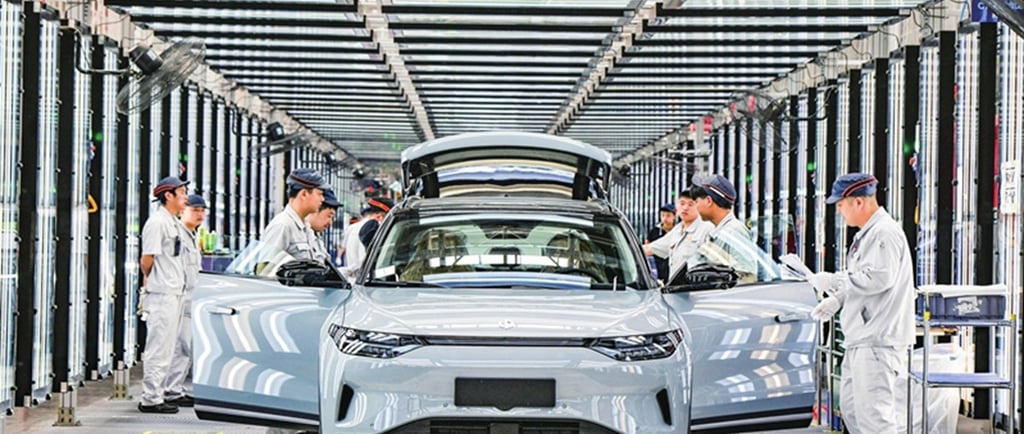Canada: Tariffs Imposed on Chinese Steel and Electric Vehicles
In response to growing concerns over China's dominance in the global green economy, Canada has introduced new tariffs on electric vehicles and key materials like steel and aluminium. How will these measures impact trade relations and the future of Canadian businesses reliant on Chinese imports?
CANADACHINA
Aisulu Sarmanova
9/6/20242 min read


Prime Minister Justin Trudeau has announced significant reforms to Canada's green economic policies, mirroring recent U.S. actions. Canada will impose a 100% tariff on electric vehicles (EVs) imported from China and a 25% tariff on Chinese steel and aluminium. Trudeau argued that China’s EV sector has gained an unfair advantage in the global marketplace, and Canada does not want Chinese goods to dominate its green economy. The tariffs will take effect on 1 October 2024 and apply to all Chinese-manufactured EVs, including those produced by Tesla at its Shanghai factory.
Tesla has the option to avoid these tariffs by supplying the Canadian market from its production facilities in the United States or Germany. While Chinese EV brands have yet to establish a strong presence in Canada, BYD, one of China’s leading electric vehicle manufacturers, recently established a corporate entity in the country, with plans to enter the market in 2025. Trudeau stated that these tariffs are aimed at countering China’s state-directed policy of industrial overcapacity, adding, “I believe we are all aware that China is not adhering to the same set of rules as the rest of the world.”
The decision has drawn a swift rebuke from China. On 24 August 2024, a representative from China's Ministry of Commerce condemned Canada’s actions, arguing they undermine global economic stability and disrupt international supply chains. The spokesperson accused Canada of violating World Trade Organisation (WTO) rules and adopting protectionist policies by imposing unilateral tariffs. Despite the criticism, Canada remains committed to reducing its reliance on Chinese imports and fostering a more self-sufficient economy.
These tariffs align with the broader geopolitical strategies shared by the United States and other Western nations, aimed at curbing China’s growing economic influence. U.S. President Joe Biden recently implemented similar measures, introducing a 100% tariff on Chinese EVs and a 25% tariff on aluminium, steel, and other products under Section 301 of the Trade Act of 1974. The tariffs are part of a concerted effort to shift away from dependency on Chinese goods and encourage local production.
The economic implications of these tariffs are considerable. China is Canada’s second-largest trading partner, albeit far behind the United States. Despite this, the new tariffs are expected to significantly impact trade relations between the two countries. For instance, Tesla, which exports its Model 3 sedan and Model Y crossover from Shanghai to Canada, has refused to disclose specific details of its Chinese exports. However, vehicle identification data has confirmed the flow of these models into the Canadian market.
From a business perspective, the new tariffs create substantial challenges for industries reliant on Chinese imports, particularly in the automotive and manufacturing sectors. Canadian companies that import steel, aluminium, or EVs from China will face higher costs, which may force them to pass these increases on to consumers or seek alternative suppliers. Multinational corporations like Tesla may need to reorganise their supply chains, relocating production to other facilities outside China to avoid the steep tariffs. This could lead to disruptions in global trade flows and necessitate further investments in production capacity elsewhere.
At a broader level, the tariffs reflect a strategic shift towards protectionism and economic nationalism, aimed at fostering domestic production and reducing reliance on foreign imports. While this may benefit certain Canadian industries in the long term, in the short term, it introduces uncertainties for businesses that depend on international trade.


